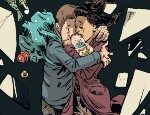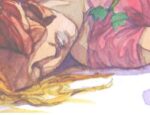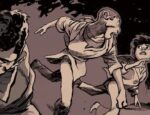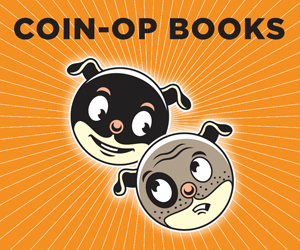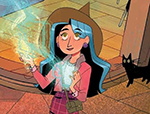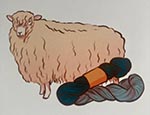I won’t pretend that I’ve ever been someone that’s particularly into their hair. Would I like it to look beautifully curled or glossily straight? Yes. Will I ever go to the effort of styling it? No. In my mind, there’s a big, diverse hairy spectrum upon which all women sit; on one end, there’s the ‘me’s’ of the world, who just about go to the effort of giving the mane a brush in the morning. On the other end, there are the women who take great pride in their hair, using it as a way to express their creativity and love for fashion. Wherever you sit on that scale, one thing is accepted as a given; that our hair will sit on our heads, ready for us to do as little, or as much with, as we choose. It’s our prerogative. Thinning and hair loss isn’t something that you tend to consider as a possibility, unless it’s associated with old age or death. However, unexpectedly losing her hair is exactly what happened to young Tereza Čechová, a concept she explores in depth in her new graphic memoir Bald from Graphic Mundi.
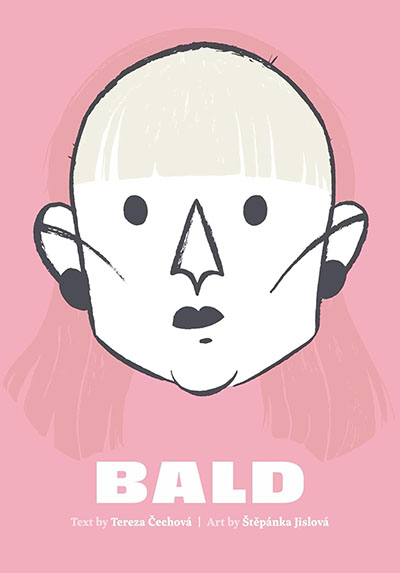
Bald is a radical graphic memoir, in that it speaks on a subject that is unusually taboo; female hair loss. From the first few pages, Čechová speaks about how hair was a huge part of her childhood; from her mother styling it for her before school, to all the regretful funky haircuts as a teenager, to frantically styling for a first date, interactions with hair, whether positive or negative, are a regular part of daily life. In fact, Tereza’s only worry about hair is that her fiancé will lose his before their wedding. So, on their first holiday together, when a clump of hair falls out whilst brushing, Tereza and her husband initially find it funny. But when the patches on her head become more frequent and too obvious to hide, it becomes clear that Tereza’s hair loss is more serious than just a one-off.
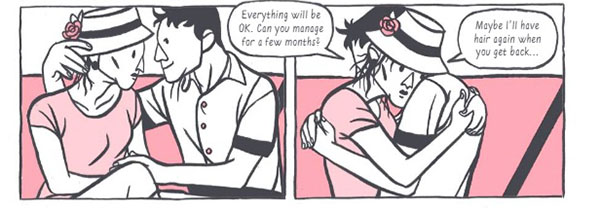
Čechová does a wonderfully moving job of illustrating how lost she begins to feel without her hair. This is most obviously articulated by artist Štěpánka Jislová on the book jacket, in which there are dual Terezas on the front and back: Tereza as she was before her hair loss, and Tereza completely bald, but with the ghost of her original hair still surrounding her in see through gloss, contrasting with the matt cover. After learning she has a condition called alopecia, and that there isn’t really a cure, Tereza begins to lose all sense of self, feeling too embarrassed to go outside or meet with friends: “I constantly had to explain to everyone what it was. I told myself I was educating them… but in reality, I was apologising for how I looked”. Čechová dives in to the history of hair, and what it historically means in different cultures, showing how hair is an expression of one’s identity; from a symbol of superhuman strength in the Bible, to wildness and freedom for hippie rockers.
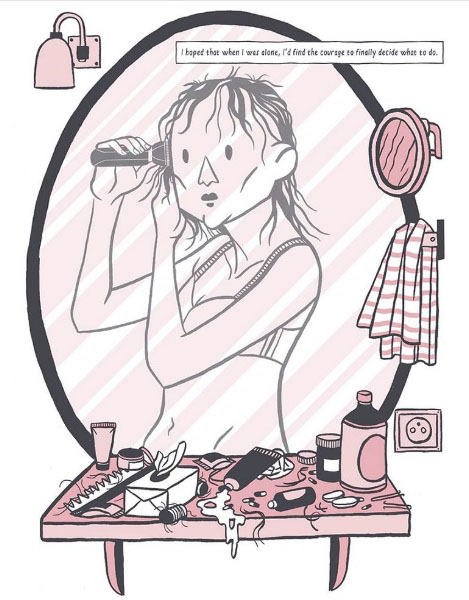
Bald is filled to the brim with detail, and particularly highlights and brings awareness to the autoimmune disease alopecia that effects so many. It is multi-layered, not simply focusing on how hair loss can have an obvious effect on your self-esteem and sense of self, but also the way in which those around you behave, the extortionate cost of treatment, wigs and holistic medicine and how people can be both cruel and overly-kind, assuming that a head covering is an indicator of cancer.
Čechová thoughtfully grieves for everyday occurrences she misses, like the feeling of the wind in her hair, massaging in your favourite smelling shampoo, or being able to push your hair into a messy updo. Made all the more effective by artist Štěpánka Jislová’s choice to illustrate in just charcoal and pink, readers can feel Tereza’s pain, embarrassment, struggle and bravery acutely throughout, often highlighted in a ‘halo’ of pink where Tereza’s hair would normally sit on her head.
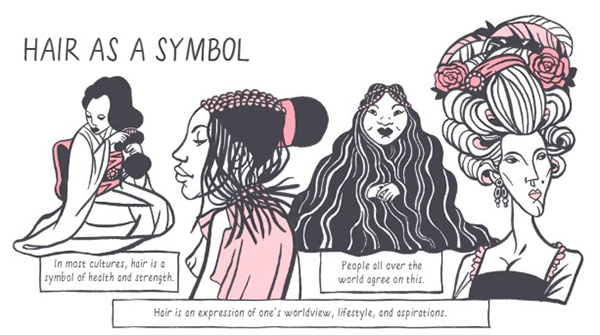
I won’t spoil how Bald ends, but it’s an emotional ride, made all the more real by Čechová’s inserts in the final pages; photographs of her before, and after her hair loss. I’m happy that she felt comfortable sharing these, after expressing throughout the graphic novel how much she’s struggled. She looks beautiful, and strong and full of life – she looks like the kind of woman I look up to.
Tereza Čechová (W), Štěpánka Jislová (A), Martha Kuhlman and Tereza Čechová (T) • Graphic Mundi, $21.95
Review by Lydia Turner





